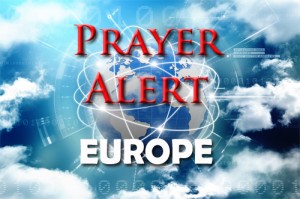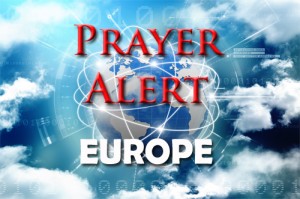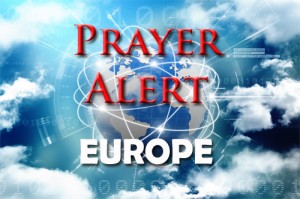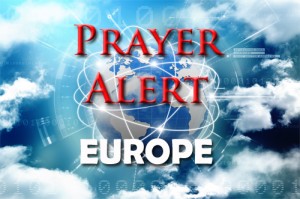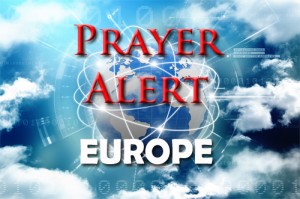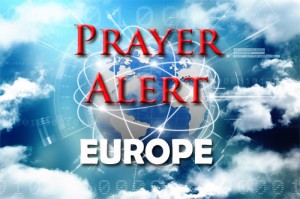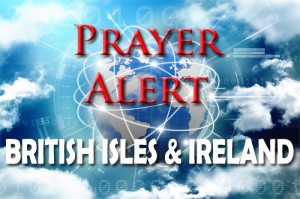Displaying items by tag: Europe
Poland: Print shop owner refused to create a homosexual banner
Poland’s Supreme Court ruled against a print-shop owner who refused to create a banner for a homosexual group. He believed it would be wrong to promote something that God calls sin. The matter began in 2015 when Adam J., turned down the project for the LGBT Business Forum. The matter went to the regional court which ruled against Adam. While Polish law allows refusal for a ‘justified cause,’ his religious convictions were not a sufficient argument. Poland’s minister of justice, Zbigniew Ziobro, filed an appeal to the Supreme Court, which upheld the ruling on 14 June. Ziobro said the ruling violates the freedom of conscience enshrined in the constitution. ‘It’s about principles not prejudice. If a service provider refuses to carry out a service, the customer may turn to their competitors.’ Alliance Defending Freedom International has now filed an intervention with the Constitutional Tribunal of Poland decrying the outcome of Poland’s high court.
Spain: Revelation TV responds to 6000 Euro fine
The National Commission of Markets and Competition (CNMC Spain) has fined UK’s Revelation TV 6,000 Euro. The Christian ministry has broadcast in Spain through satellite since 2012. The fine comes after an individual complained to CNMC about one of the two-hour programmes which discussed a homosexuality news item for 13 minutes. The licensing authority said the show’s comments could be considered 'threatening to the dignity of homosexual and transgender groups'. Revelation’s CEO said, ‘The programme was expressing a biblical view on the subject and homophobia had no part in it. We will take the matter through the courts if necessary. Our lawyers said that if they find us guilty they will have to find every Roman Catholic Church guilty also. Revelation TV is a Christian station, owned by a charity, dealing with issues form a Christian perspective. We look at the news, we have Bible study, worship, church services and everything you would expect of a Christian TV station.’
EU: plans for Britons in Europe post-Brexit
Home secretary Sajid Javid, after unveiling a new ID scheme for EU citizens living in Britain, has called on EU leaders to publish concrete plans to preserve the rights of British citizens living on the continent post-Brexit. He is concerned that other EU member states have not stated how they are going to support Britons in Europe, when the Government has advanced plans for a new status for the estimated 3.4 million EU citizens living in the UK. The European parliament’s chief Brexit coordinator, Guy Verhofstadt, said there were ‘serious concerns’ over all citizens impacted and affected by Brexit. ‘British in Europe’ complained last week that they represented the forgotten victims of Brexit, with neither Brussels nor London taking up their fight to retain their rights to maintain free movement and continue to work freely and offer services across the continent. The ‘right of return’ to the UK without any immigration barriers was also raised.
Italy: Roma people
In a dusty Roma camp, life goes on despite threats of an ethnically-targeted census and deportation by Italy's new hardline interior minister Matteo Salvini, who recently refused to take in a rescue ship carrying 630 migrants. He intends to throw out Roma people without legal status. His call was blasted as ‘unconstitutional’ by rights groups and criticised by members of his own government. Some are drawing parallels with measures targeting Jews under fascist wartime leader Benito Mussolini. ‘If Salvini comes here, we will welcome him with kindness. He needs to see how we live’, says Habibi Mehmedi, a teenager in a camp outside Rome's main ring-road - away from the eyes of the office workers and tourists. ‘Some do bad things, but most of us are Italian and have not committed any crimes.’ Despite the Roma community making up at most 0.3% of Italy's population, they are subject to extreme hostility from the general public. The Joshua Project states that the Italian Roma people’s primary religion is Christianity.
Pray for Europe’s revival
Europe has almost two thousand years of Christian history, from the Apostle Paul planting the first European church in Lydia’s house in Philippi through to the Moravians, Jan Hus in Moravia, Count Zinzendorf and the Herrnhut community in Saxony, Pietism in the Lutheran church, Huguenots in France, and the evangelical awakening in Britain through George Whitefield and John and Charles Wesley. More recently there have been Pentecostal revivals in Wales. God is still at work in Europe today! It is said that where a revival has happened before, it is easier for it to happen again. This encourages us to hope that the recent decline in church life can turn to growth again. Pray for such a total turnaround in the spiritual situation in Europe that atheism and humanism can no longer claim to be dominant.
Hungary: proposal to end homelessness
MP Istvan Bajkai hopes homelessness will become a thing of the past if his proposed law is taken on by the government. Bajkai previously worked as prime minister Viktor Orban’s lawyer. He wants to amend the constitution to ban homeless people from living and sleeping in public spaces. He said sleeping rough shouldn’t be necessary as everyone without a home is guaranteed shelter. Support services, day centres, and night-time accommodation, are widely available. But according to a local NGO, there are 11,000 places available in temporary accommodation for 30,000 people sleeping rough. Critics say many shelters are unsuitable and lack security, and banning the homeless from public spaces would be impossible to enforce. The director of Shelter Foundation said that to solve homelessness, Orban’s government should support the development of cheap rentals in cities or offer financial support to those who cannot afford to live in them.
Catholic hospitals must carry out abortions
Irish hospitals with a Catholic ethos will be expected to carry out abortions when the country’s new laws on terminations come into effect, the Taoiseach has made clear. Leo Varadkar said that while individual doctors, nurses or midwives could opt out of performing procedures on conscience grounds, entire institutions will not have that option. He was addressing concerns about surgical abortions. The government is drafting legislation to allow any woman to request an abortion up to 12 weeks, subject to a cooling-off period, and to allow abortion in extreme cases between 12 and 24 weeks. This was after citizens voted two-to-one in a referendum to repeal the state’s constitutional ban on abortions. The Taoiseach said the legislation would follow the model of the Protection of Life During Pregnancy Act 2013, which allowed for terminations in extreme medical circumstances and for individual medics to opt out.
Being Christian in Western Europe
7 out of 10 Western Europeans call themselves Christians. However, the majority are non-practising (defined as attending church less than once a month). Across the 15 countries studied, 79% of self-identifying Christians believe in God, ranging from 93% in Portugal to 59% in Sweden. No national Christian population in Western Europe puts a high premium on evangelism; only 8% of believers say they try to persuade others to adopt their Christian convictions. Fasting during holy times and wearing religious symbols are also uncommon practices. About 24% say they tithe, ranging from 43% in Portugal to 18% in the UK. Among non-practising Christians less than half believe God is all-knowing (34%), all-powerful (26%), or all-loving (47%). Most practising Christians assert God’s omniscience and His all-loving nature, but barely half agree that God is all-powerful.
Slovenia: forming a new government
A new government has to be formed after the anti-immigrant Slovenian Democratic Party (SDS) won 25% of the vote in the general election. The centre-left, anti-establishment party, Marjan Sarec List (LMS) came second with 12.7%. SDS is led by former PM Janez Janša, a vocal supporter of Hungary's nationalist prime minister Viktor Orban. The SDS said the door for talks and coalitions is open to all other parties. It would need to join at least two other parties to gain a majority. Most other parties have ruled out a coalition with Mr Janša because of his extremist views. They could form a centrist coalition. SDS believes money spent on migrants would be better used for Slovenia’s security forces. Mr Janša wants Slovenia to ‘become a country that puts wellbeing and security first’. The banking system, the health sector, and pensions will become key issues on the next government's agenda. Post-election negotiations are expected to be difficult.
White fields across the Channel
Mainland Europe is a mission field on our doorstep. Jean Darnall and Smith Wigglesworth both prophesied God’s Spirit would flow from the UK to mainland Europe. Some from the UK and other European nations have relocated to France as ‘missionaries’. The evangelical church in France has seen remarkable growth equivalent to one new church every ten days. There are now 650,000 evangelical Christians in France. At the same time, the Roman Catholic church has declined, but there is a thriving RC charismatic movement. Social despair, mistrust of political leaders, and high unemployment, combined with a cultural willingness to discuss and debate have created conditions favourable to evangelical church growth. Now a Paris-based ministry with a vision for France and Europe called Jesus2Europe invites UK intercessors to join in prayer for France between 1 and 7 June. You can sign up for a prayer slot at

